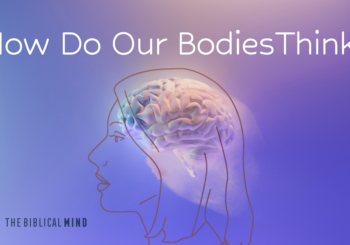How Morality in the Bible Emerges within Narrative
Morality in the Bible is often perceived as ethical laws imposed by God upon humanity, violation of which warrants divine retribution. Scholarship tends to neglect biblical narrative since such episodes generally do not include moral instruction in imperative form. However, morality in the Bible should not be confined to the observance of law, as there is also vast ethical potential in narrative texts. Many ethical issues are not within the scope of biblical laws, yet are essential components of moral life and are described in stories throughout the Bible. Moral teachings can be gleaned from biblical episodes in which ethical themes are dramatically portrayed and morally significant, even if not codified into theoretical principles.
Enjoying this article? Read more from The Biblical Mind.
In many scenarios, the Bible illustrates moral problems and elicits moral reflection, rather than decreeing unequivocal dogmas or moral judgments. These stories constitute a meaningful source of moral guidance, as they present ethical ideas in a manner with which the reader is able to identify. The vivid illustration of narrative presents a relatable dimension of ethics in which the complexity of moral reality can be examined. Through intricate biblical narratives with multifaceted characters and complex situations, the reader is challenged to decipher ethical ambiguity, think through the difficult personal facets of ethical problems, and recognize the diverse perspectives of ethical conflicts and their implications for normative morality. Assessing a biblical figure’s motivation or action in a complicated circumstance provides detachment from theoretical prejudices and can heighten readers’ moral reflection when confronted with their own ethical debates. Readers can then internalize personal meaning in their evaluation of the challenging episodes and draw connections between the conduct of biblical characters and their own experiences.
Philosophical analysis can aid the reader in making sense of morally difficult stories and the lessons that Scripture aims to teach about the human condition. The Bible’s numerous narratives do not present a single moral vision, but rather, contribute to a broader picture of morality. Since explicit moral evaluation of characters or their questionable conduct is largely omitted from the Bible, ethical analysis can elucidate moral issues, uncover subtle teachings entrenched within its episodes, and abstract principles and intellectual theories from individual cases that can further moral knowledge and be applied broadly. General moral problems are particularized in biblical stories that yield moral insight, rather than moral rules, and enable readers to appreciate nuance and perspectives that are necessary to resolve difficult moral dilemmas. Narratives in which biblical characters are engaged in ethically challenging scenarios motivate readers to reevaluate established assumptions and develop moral reasoning and moral judgments.
In contemporary society, one may not often think systematically about the principles underlying the multitude of ethical choices and evaluations that humans make in daily life. Through the biblical literary framework, readers can grapple with complex moral questions and incorporate the tensions, competing values, and varied positions embedded in moral conflict, both in those depicted in the Bible and those confronted in reality, into their own ethical thinking.
A philosophical analysis of challenging biblical narratives can elucidate scriptural stories and enable the reader to understand certain truths about human life that continue to be explored in modernity. Scriptural stories maintain enduring value as they address relevant moral questions, such as: Should one defer to God’s command or follow one’s own moral conscience? How is one to make sense of and respond to injustice? Is it ever appropriate to lie or deceive and, if so, under what circumstances? How can human ethical practices be sustained when faced with dilemmas in which morality is challenged by competing values?
However, even though there is morality in the Bible, and the Bible can provide guidance for living a moral life through significant lessons learned from its texts, it does not offer authoritative responses to such questions, as it is difficult to derive all-encompassing rules regarding moral behavior. One’s conduct may be defended as ethical in a particular situation, even if deemed reprehensible in other contexts. The complexity portrayed in the Bible’s stories, just as in ethically difficult situations in modern life, invites exploration, but does not yield simple resolution. Rather, readers can reflect upon the moral ideas conveyed in biblical narratives, with sensitivity to the considerations raised in ethical analysis, which can then inform their examination of moral conflicts as encountered in contemporary life.
Subscribe now to receive periodic updates from the CHT.





